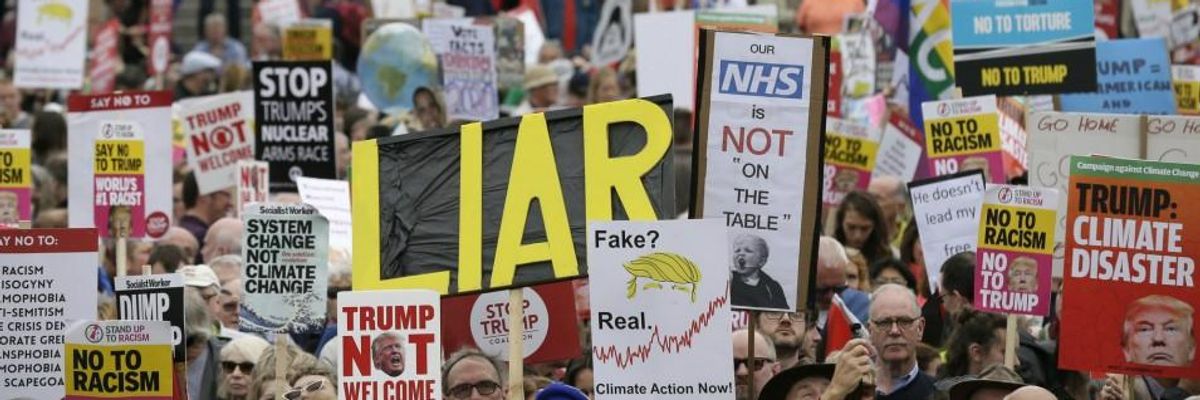Even before President Donald Trump stunned the international community by ordering the assassination of Iranian military commander Qasem Soleimani last week, people around the world had little confidence in Trump's handling of global affairs.
In a Pew survey taken of nearly 37,000 people in 33 countries between May and October 2019 and released Wednesday, 64% of respondents said they did not have confidence that Trump would do "the right thing" when making decisions about relations with other countries.
The Pew Research Center asked respondents whether they favored a number of Trump's most significant decisions up to last year, including his withdrawal from the Iran nuclear deal and the Paris climate agreement, his proposal to build a wall along the southern U.S. border as well as other aggressive anti-immigration policies aimed at deterring immigration, and his decision to increase tariffs on imported goods.
Respondents in Mexico had the least favorable view of Trump. The president was viewed negatively by 89% of people in the country that the president claimed in 2015 was sending its "most unwanted people" including "criminals, drug dealers, rapists" to immigrate to the United States.
The president also had low favorability ratings in European countries including the Netherlands, Spain, Sweden, Germany, and France, with about three-quarters of people in those countries saying they weren't confident in Trump's foreign policy decisions.
In the last year of his first term, Trump's results were similar to those of George W. Bush at the end of his second term as president, five years into the Iraq War and around the time that the speculation on Wall Street sent the global economy into a meltdown.
At the end of President Barack Obama's second term, 79% of international respondents viewed the 44th president favorably.
It is "worth reiterating the damage Trump is doing to our alliances at a moment when we could use steadfast allies," political scientist Brian Klaas tweeted, along with a chart showing the difference between global opinions regarding Obama during his presidency versus those of Trump.
Richard Wike, director of global attitudes research at Pew, wrote that negative attitudes about U.S. leadership plummeted during Bush's tenure due to the perception of the U.S. as an "unchecked superpower," while people today see Trump as isolating the U.S. from the global community by breaching and withdrawing from international agreements.
"In the Trump era, by contrast, critics are less concerned about the exercise of unrivaled U.S. power than they are about a U.S. retreat--from both global leadership and liberal democracy," wrote Wike.

